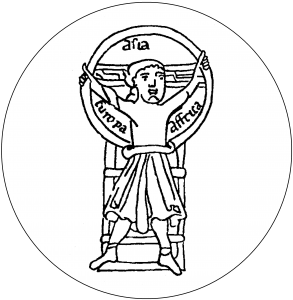Graduate Seminar: The Gendered Fictions of Medieval Iberia (9.-10.10.2013)
In a recent op-ed, Spanish novelist Juan Goytisolo praised the Iberian literature of the 15th century for its linguistic richness that laid the ground for contemporary literature and culture, enabling “an unheard of precedent” to what we call nowadays “modernity”. This graduate seminar seeks to explore two areas of special interest for this modern quality of the Middle Ages; the interplay between history and fiction as narratives of lived experience, and the constructions of gender and sexuality that inform and/or come out of such narratives. The primary sources at the core of this seminar will familiarize students with two debates in fourteen and fifteen-century Medieval Iberia: namely, the debate about women and the debate about chivalry. The debate about women involves the production of sentimental romances as well as didactic prose, and it introduces us to defenses and slanders of women that evolved from the wildly popular pan-European Querelle des Femmes. The debate about Chivalry is rooted in the political turmoil of the fourteenth and fifteen-centuries, which had important consequences for the redistribution of wealth and aristocratic privileges. Despite the interconnectedness of political, social and cultural networks at the center of which these two debates take place, the tendency has been to study them separately as two independent phenomena. As a result, the Castilian Querelle des Femmes appears to be an entertainment stripped of all historical relevance while the Debate sobre la caballería obviates the importance of gender and sexuality in the representation and performance of Knighthood.
In this seminar we will work through texts, representative of each debate, putting them in the context of the historical moment in which they coexist. Second, we will consider the aristocratic and learned networks in which they are produced identifying exchanges between authors, patrons and readers. And third, we will consider an array of theoretical approaches in order to question the separation of the debates and foster a comparative analysis of their importance. As primary sources, we will read examples of each debate available in translation. In addition to a selection of texts involved in the debate about chivalry, we will read an English translation of El Victorial (Ca. 1435), the biography of Pero Niño, Count of Buelna, a representative of the defense of the exercise of arms against noble birth as the true source of knightly virtues. The second primary source is a sentimental romance by Juan de Flores, La historia de Grisel y Mirabella. This typical sentimental romance breaks the mold by introducing one of the polemicists on the vices of women, Pere Torrellas. We will read Flores’s little romance vis-a-vis Torrellas (the author) Slander against Women. The combination of polemic and fictional texts allows us to discuss the limits of fiction and its relations to the social and political context in which it is produced.
Proposed Schedule:
Wednesday October 9th, 2013 Meeting at Det Kongelige Bibliotek*
Morning meeting Lecture by Ass. prof. Christian Høgel (CML) Manuscript Culture and Social Networks.
*This session will take place at Det Kongelige Bibliotek to give students the possibility of observing the Spanish manuscripts of the 15th century available in the library´s collection, in particular that of Juan de Mena’s Tratado sobre el título de Duque.
Afternoon meeting Lecture by Sacramento Roselló-Martínez (CML) The Politics of Life-writing and the Castilian Debate about Chivalry
Thursday October 10th, 2013 Meeting at CML- SDU Odense Morning meeting Lecture by Prof. Emily C. Francomano (Georgetown University) Sentimental fictions and the Iberian Debate about Women.
Afternoon meeting Round table on Gendered Fictions beyond Medieval Iberia with the participation of Prof. Christian Høgel and Prof. Emily Francomano.
Practical information
The graduate seminar is open to all Ph.D students working with subjects related to the theme of the seminar. Applications should include CV and a Cover Letter addressing the relevance of the seminar for your current research (no more than one side of A4, single spaced).
Applications should be sent before the 1st of September 2013 to kf.rasmussen@sdu.dk.
Readings will be distributed upon acceptance. The seminar will combine lectures and discussions based on these materials. Participants will be required to complete a short writing assignment.
Participants will be granted 2 ECTS upon fulfillment of these requirements.
There is no cost for attending the seminar. There will be bursaries available for those accepted to help with travel and lodging expenses.
This project is organized by the Centre for Medieval Literature (University of Southern Denmark and University of York) in cooperation with The Graduate School in History, Area Studies and Archaeology (University of Southern Denmark).

